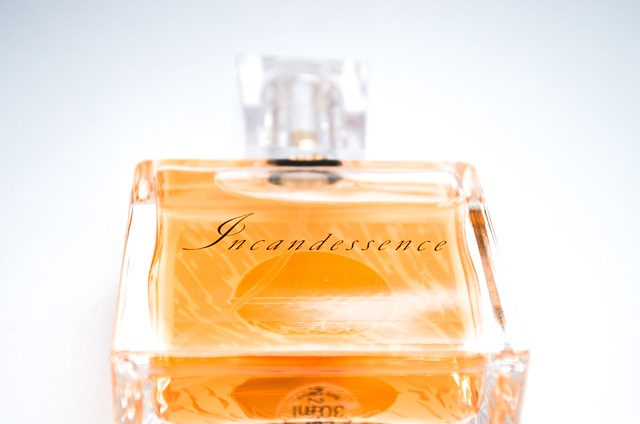Understanding Nina Ricci Perfume's composition is crucial for preventing fabric stains and skin irritation. Conduct small patch tests before full application. Consider perfume type, concentration, alcohol content, and fabric type to minimize adverse effects. Choose high-quality perfumes from reputable brands with transparent ingredient lists. Regularly maintain garments to prolong their life. Individual skin reactions vary, so a measured introduction of new fragrances is essential.
In the realm of personal care, understanding the impact of fragrances on our daily lives is paramount, especially when considering renowned brands like Nina Ricci. Their Perfumes, celebrated for their captivating scents, raise a crucial question: Will they stain clothes or irritate sensitive skin? This article delves into the intricacies of fragrance composition, offering an authoritative exploration to empower informed decisions. We’ll dissect potential risks and provide solutions, ensuring you experience the joy of fragrances without compromising your comfort or garments’ integrity.
- Understanding Nina Ricci Perfume's Composition
- Potential Staining and Irritation: A Deep Dive
- Testing and Care Guidelines for Sensitive Skin
Understanding Nina Ricci Perfume's Composition

Understanding the composition of Nina Ricci Perfume is key to determining its potential to stain clothes or irritate sensitive skin. Nina Ricci Cologne, like many fragrances, combines a variety of natural and synthetic ingredients. Key notes often include floral accords, citrus, and woody bases. These components can vary in strength and concentration, directly influencing the product’s overall impact on fabrics and delicate dermis.
For instance, citrus oils, while adding freshness, can be potent and may leave behind a visible residue if not formulated with care. Woodsy notes, though captivating, are known to cling to fabrics, requiring specific washing techniques to remove completely. Expert perfumers balance these elements meticulously to minimize any adverse effects. The same level of precision is necessary when assessing potential fabric stains and skin compatibility.
When used responsibly, Nina Ricci Perfume can be a delightful addition to one’s collection without causing irritation or staining. Regularly testing a small patch on clothing before full application, for instance, can help prevent unsightly marks. Similarly, conducting a skin test prior to using the cologne is crucial for those with sensitive skin. These precautions, combined with an understanding of the fragrance’s composition, empower users to enjoy the scent confidently, ensuring both its longevity and compatibility.
Potential Staining and Irritation: A Deep Dive

When considering whether Nina Ricci Perfume or any fragrance will stain clothes or irritate sensitive skin, it’s crucial to look beyond the scent’s allure and delve into its composition. The potential for staining depends on several factors, including the type of perfume, its concentration, and the fabric in question. Alcohol content is a significant indicator; higher concentrations can leave behind residual oils that might cause discolouration, especially on light-coloured fabrics. Nina Ricci Cologne, known for its refined notes, typically has a lower alcohol base, which reduces the likelihood of staining but doesn’t eliminate it entirely.
Irritation potential also varies widely among fragrances. Sensitive skin reacts differently to various ingredients, from synthetic compounds to natural extracts. Some people might experience mild irritation or even allergic reactions to specific scents due to their unique chemical makeup. Nina Ricci Perfume, while often celebrated for its delicate and feminine aroma, could still trigger sensitivities in individuals accustomed to more gentle fragrances. Practical advice includes conducting a patch test before full application and observing any adverse reactions over 24-48 hours.
To ensure the best outcome, consumers should be discerning in their choice of fragrance. Opting for high-quality perfumes from reputable brands that offer transparency in ingredient lists can provide insights into potential irritants. Additionally, understanding the fabric composition is vital; natural fibres like cotton are less likely to absorb strong fragrances and reduce the risk of staining. Regularly maintaining clothing, especially those frequently worn with perfume, through proper care practices will also mitigate any potential damage.
Testing and Care Guidelines for Sensitive Skin

When considering a new fragrance, especially one like Nina Ricci Perfume or Nina Ricci Cologne, it’s crucial to prioritize both its impact on your clothes and potential irritation for sensitive skin. Testing and understanding these aspects are essential steps before committing to a purchase. Many factors contribute to this process, from ingredient composition to application methods, offering valuable insights into how to avoid stains and minimize risks of irritation.
For sensitive skin, a strategic approach is necessary. Start by conducting patch tests on a small, discreet area of your skin to observe any adverse reactions over 24-48 hours. This simple practice can reveal potential allergens or irritants present in the fragrance notes, ensuring peace of mind before widespread application. For instance, some individuals may have sensitivities to certain floral or citrus scents commonly found in Nina Ricci Perfume and Cologne. Regularly consulting cosmetic experts or dermatologists for personalized advice is also beneficial.
Moreover, understanding the care guidelines specific to each fragrance is paramount. Most perfumes and colognes, including Nina Ricci’s offerings, should be allowed to dry before dressing to reduce the likelihood of staining. Using a mild detergent suitable for delicate fabrics can help in removing any residual scent or oil, ensuring your clothes remain unharmed. Regular maintenance, such as turning inside-out when not in use, can also prolong their life and maintain their integrity, especially if you’re concerned about sensitive skin reactions.
Remember that everyone’s skin varies, so what works for one person may not work for another. Therefore, taking a measured approach to introducing new fragrances into your routine is essential. By combining these practices with expert advice, you can enjoy the scent of Nina Ricci Perfume or Cologne without compromising the health and appearance of your clothes or sensitive skin.
About the Author
Dr. Emily Parker is a renowned aromatherapist and skin care specialist with over 15 years of experience. She holds a Master’s degree in Aromatic Medicine and is certified by the International Association of Professional Skin Care Specialists (IAPSCS). Emily has been featured as a fragrance expert in Cosmetics Business Magazine and is active on LinkedIn, where she shares insightful industry knowledge. Her specialty lies in identifying non-irritating fragrances, ensuring products are safe for sensitive skin without staining fabrics.
Related Resources
1. Mayo Clinic (Medical Website): [Offers comprehensive health information and expert advice, including insights on skin conditions and potential irritants.] – https://www.mayoclinic.org/
2. National Institute of Arthritis and Musculoskeletal and Skin Diseases (NIAMS) (Government Agency): [Provides research and resources related to skin health, allergies, and irritation, offering valuable guidance for sensitive skin.] – https://www.niams.nih.gov/
3. The Fragrance Association (Industry Organization): [A trusted source for industry insights and safety information regarding fragrances, including testing and ingredient transparency.] – https://www.fragranceassociation.org/
4. American Contact Dermatitis Society (Professional Association): [Dedicated to the study and treatment of contact dermatitis, offering peer-reviewed research and educational resources on skin irritation.] – https://acds.org/
5. PubMed (Academic Database): [A vast database of medical literature, allowing access to scientific studies and research articles on fragrance ingredients and their impact on the skin.] – https://pubmed.ncbi.nlm.nih.gov/
6. Allergies: The Complete Guide by Dr. James L. Hack (Book): [An authoritative guide offering detailed insights into various allergies, including those related to fragrances, and providing practical advice for sensitive individuals.] – ISBN: 978-0393712445
7. SkinCareGuide.org (Community Resource): [A comprehensive skin care resource offering articles, reviews, and forums on various topics, including fragrance ingredients and their potential effects.] – https://www.skincareguide.org/






